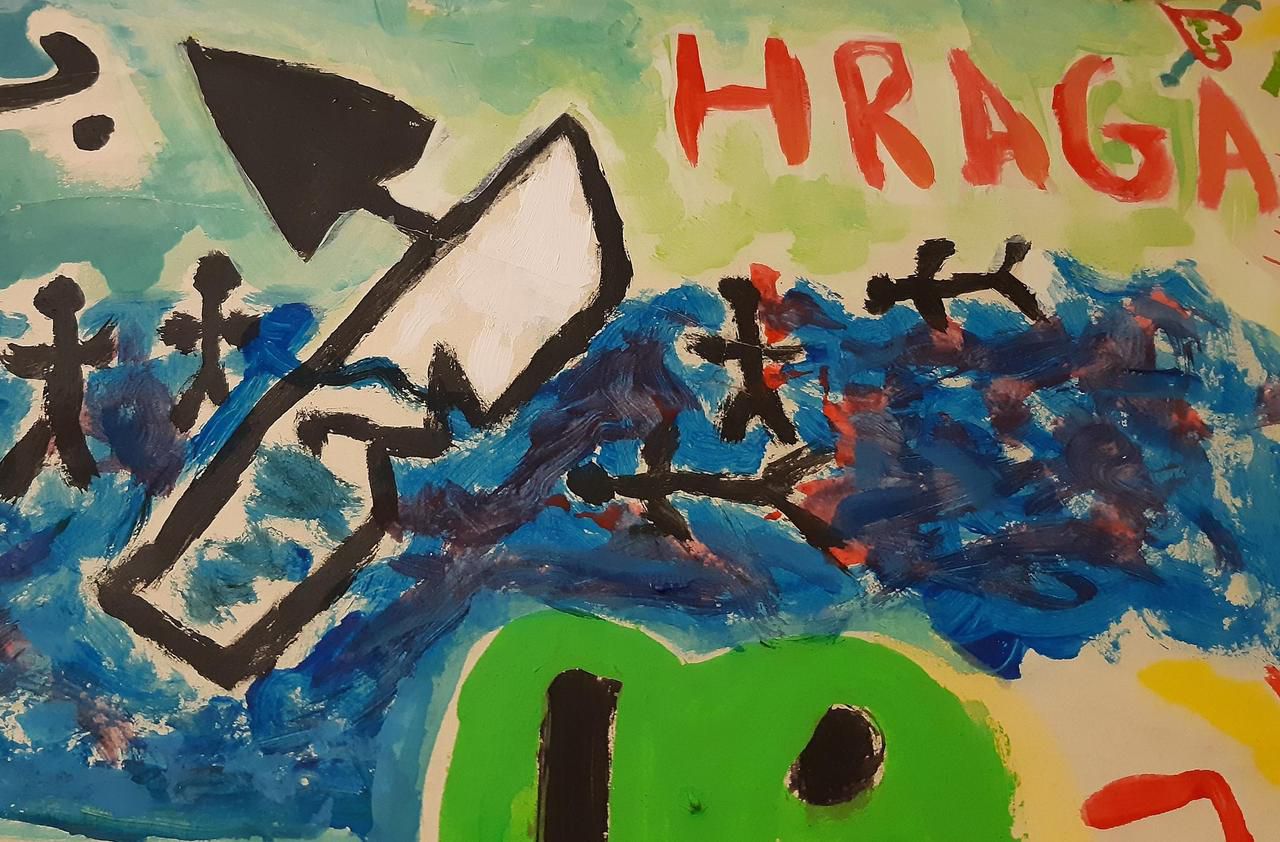They have the bodies of children, play like children, but their eyes are dead.
During the day, we meet these unaccompanied minors from Morocco, 80%, and Algeria, 20%, in the district of Goutte-d'Or, in the 18th arrondissement of Paris, where they wander, to the chagrin inhabitants and traders worn out by this forced cohabitation.
READ ALSO>
Delinquency in Ile-de-France: behind isolated minors, the shadow of networks
In the evening, there are those who sleep in the street - like those figures seen in a car - or in squats.
The lucky ones find a real bed at the Casp (Protestant Social Action Center), mandated by the city of Paris to take care of these young people with complex and diverse backgrounds.
"Delinquency, drugs to survive"
Wednesday September 16, 8:30 p.m.
Accompanied by a team from the center, seven young people enter the Casp.
Some, after a "fist check", a "hello", settle in the patio.
Others go directly to the dormitory with orange and white walls, where underpants, pajamas and slides are placed.
Seven beds are arranged, against twelve usually, Covid-19 requires.
They are rather cheerful, many say they are very "tired".
"The days are longer in the summer, but it is also because of their high consumption of narcotics", explains Mahdi, head of department at Casp.
Yacine is 15 years old.
“I've been there for a year and a half,” he explains to Mohamed, a social mediator who acts as an interpreter.
Before arriving in France, I was in Melilla (a Spanish autonomous city in the Eastern Rif in Morocco).
I hid in a truck that took the boat to Spain where I stayed six months.
Then I went to Italy for nine months, then to Sweden for a year and a half, and now I'm here, ”he blurted out before walling into silence.
Suddenly, he gets up, cutting off the discussion.
Few are those who confide in and reveal their private life.
“They were robbed of their childhood, they experienced trauma, insists Aurélie El Hasak-Marzorati, director of Casp.
They left Morocco or Algeria where they lived for the most part in the countryside or small towns.
They were looked down upon, for example, because they were raised by a single mother, or suffered violence.
So they went to peri-urban areas in Fez, Casablanca, where they fell into delinquency, drugs… to survive in a street world.
And repeat the same here.
Blue fitted T-shirt, denim Bermuda shorts, Mohamed, 17, impeccably dressed, left Algeria very young.
“I stayed two and a half years in Spain, dos años,” he continues in Spanish, “and I've been in Paris for a year and a half.
"In Casp, a" health protocol was put in place because he had scabies ", details Mohamed, the social mediator.
Music headphones on the neck, whoever listens to "rappers Niska and Lacrim" dreams of "footballer."
"
"Young people who, at night, are afraid to sleep alone ..."
At 9:20 p.m., all the young people are washed, it is time to sit down to eat.
On the menu: escalope, green beans, bread, harissa.
"This is the moment when we can all discuss," notes Mohamed.
“It is very complicated to establish a relationship of trust, these are young people who move from one country to another, are very mobile, it is new in the world of migration.
There are as many stories as there are people, ”Aurélie insists.
“Sometimes we manage to move forward, to put things in place, sometimes we go back.
I remember a young man who was tough.
One day, he was sulking, I told him,
if your mother was there, she would take care of you
, he burst into tears, ”says Mohamed, always benevolent.
"It is a work of goldsmith that must be done to take charge of these young people individually and find an answer adapted to each of them," adds the general manager.
Many suffer from physical, moral and emotional deficiencies.
"
Artistic workshops allow some young people to express their suffering. / LP / Maïram Guissé
These traumas, some express them during artistic workshops.
On the walls of this dining room, two large drawings bear witness to dreams and suffering.
Most of the faces shown are marked with scars on the cheek.
The relationship with drug addiction is also very present, as with this guy drawn upside down, a joint in his mouth dreaming of the sun, a beautiful red car and a woman to whom he offers flowers.
Beside, another drew a boat with dead figures in the water.
“This is their experience, breath Mohamed, the social mediator.
We have young people who, at night, are afraid to sleep alone… ”
Newsletter - Most of the news
Every morning, the news seen by Le Parisien
I'm registering
Your email address is collected by Le Parisien to enable you to receive our news and commercial offers.
Learn more
Near the smiling and silent Walid, 14, with a juvenile face, Amine, 17, dressed all in black, silver necklace around her neck, explains being "in Paris for two years". "My father is Algerian, my mother
(to whom he sends money)
Moroccan, but they are separated", he explains. From his backpack, he takes out of a transparent plastic bag a judicial placement order issued in July. "I was sent to a hostel in Orléans (Loiret), but it is prison, we cannot smoke or watch TV and we are spoken of badly". So he came back to La Goutte-d'Or, in the street. Sometimes he comes to Casp, sometimes he sleeps "in a squat in Sarcelles" in Val-d'Oise. Return to the country? The “search for a better life” is far too strong.

